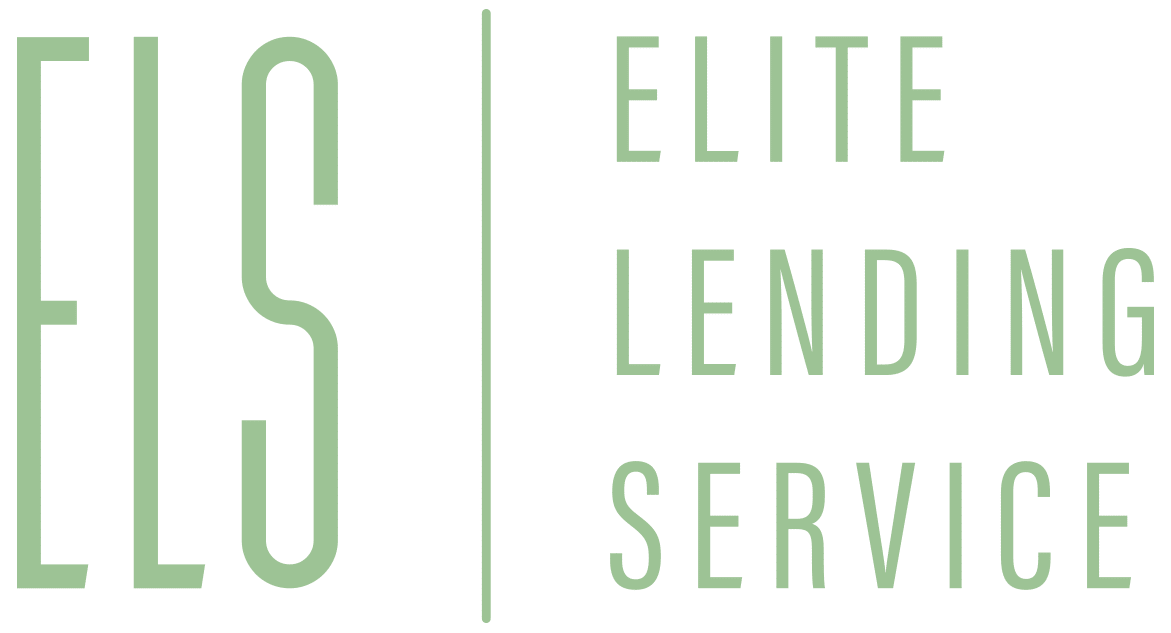Wondering ‘how much can I afford to pay for a house?’ boils down to more than just a dollar amount—it’s a nuanced equation of your financial health and planning. This guide sidesteps the fluff and zeroes in on what truly matters: your budget, debt, potential mortgage costs, and the extra expenses that come with home ownership. Get ready for a straightforward path to understanding your home affordability.
Key Takeaways
- Your home buying budget is influenced by factors such as income, debt levels, and down payment, with additional costs like property taxes, insurance, and maintenance also essential to consider.
- Mortgage affordability is significantly impacted by your debt-to-income ratio (DTI), with lenders preferring a DTI below 36% to offer favorable loan terms, including interest rates.
- Choosing the right mortgage type (e.g., FHA, VA, conventional) and terms (e.g., 15-year vs. 30-year) is critical as they directly affect monthly payments and long-term costs, with interest rates playing a central role in overall affordability.
Table of Contents
Determining Your Home Buying Budget

A solid financial blueprint is the starting point of your home buying journey. A cornerstone of this process is establishing a budget that intertwines your mortgage payment, down payment, and various housing-related expenses. Your annual income is the beacon guiding your mortgage payment capacity, setting the stage for monthly payments that fit comfortably within your financial ecosystem. It’s about striking that delicate balance between your monthly income and the house you can afford, ensuring your housing budget aligns with your life’s blueprint.
Consider the interaction between your income, debt levels, and down payment when creating a budget for your future home, as these factors form the supportive pillars of the mortgage you can secure. The narrative of homeownership is incomplete without accounting for all monthly obligations, ensuring your housing expenses don’t eclipse the other chapters of your financial story. A keen awareness of the difference between potential expenditures and those that won’t overextend your means is vital to avert financial stress. Tools like a home affordability calculator can act as a financial compass, helping you navigate the waters of mortgage affordability and answering the question, “house can I afford?”
Income vs. Expenses: The Balancing Act
Balancing your annual income against monthly expenses is like performing a financial high-wire act; it requires precision and foresight to keep it stable. This balancing act isn’t just about your gross income; it encompasses a broad spectrum of monthly obligations such as credit card payments, student loans, car payments, and the cost of living essentials, all which must be tallied to calculate an affordable mortgage payment. Like an astute juggler, paying off existing debts can add grace to your financial performance, increasing the affordability of a mortgage and giving you the flexibility to enhance your home savings fund.
A steady income forms the platform from which you can perform this act, ensuring your housing budget doesn’t teeter under the weight of unexpected expenses. Yet it’s the foresight to account for life’s unforeseen expenditures that distinguishes a skillful financial performer from a novice. This foresight empowers you to craft a housing budget that supports not just the walls of your home but the life you build within them.
How Much Can I Afford to Pay for a House? Down Payment Decisions
The decision on the down payment is a critical juncture in the home buying process, with potential implications on your monthly mortgage payment. It’s a financial lever that, when pulled wisely, can ease the weight of your mortgage payment and the specter of mortgage insurance premiums, which loom large if the down payment is less than 20% on a conventional loan. Summoning the resources for a 20% down payment or higher can be a game-changer, shrinking your monthly mortgage payments and allowing you to evade the additional cost of private mortgage insurance (PMI).
Yet, not all paths to homeownership require such a steep initial investment. FHA loans, for example, extend a hand to those with smaller upfront capital, offering down payment options as low as 3% and the chance to grasp the keys to a home with a modest starting sum. However, it’s important to peer into the future and consider how this decision could influence long-term costs and the overall affordability of your home.
Planning for Property Taxes and Additional Homeownership Costs
Homeownership comes with additional costs that are often hidden in the fine print, including ongoing property taxes and homeowners insurance, HOA fees, and routine maintenance. These are not mere footnotes; they’re recurring expenses that demand a place in your monthly budget. Beyond the mortgage payment, homeowners should earmark 1% to 4% of their home’s purchase price each year to cover the narrative arcs of maintenance and repairs. Don’t forget to factor in closing costs when purchasing a home, as they can significantly impact your overall expenses.
An emergency fund is the plot twist that can save your story from turning into a financial tragedy. Setting aside a safety net of $5,000 to $10,000 can shield you from the unexpected expenses that life may throw your way, while home warranties can offer a semblance of cost control for those not well-versed in the DIY arts or lacking a savings cushion.
Furthermore, if your tale includes home renovations, be prepared to budget for these improvements; homeowners in the past have spent a median of $15,000 on renovations, a figure to keep in mind as you pen the future chapters of your home’s story and consider how much house you can afford.
Understanding Debt-to-Income Ratio (DTI)

In the context of homeownership, the debt-to-income ratio (DTI) is a key focus, highlighting the proportion of your pre-tax income used to service debts like mortgage, student loans, and credit card debts. It’s a key performance indicator for lenders, offering a glimpse into your financial health and the capacity to take on the monthly mortgage payment without compromising other life expenses. Maintaining a DTI of 36% or lower is the industry’s standing ovation, signaling strong financial standing and room for unexpected expenses, while a DTI above 43% can signal a tough act to follow, potentially leading to higher interest rates and stricter underwriting.
Lenders scrutinize DTI ratios to determine the risk associated with extending credit. A favorable DTI is like a strong lead in a play—it suggests that the borrower can comfortably handle new financial obligations. It’s paramount to understand that achieving a DTI under the preferred 36% threshold can mean the difference between securing a mortgage with favorable terms versus one that strains your financial narrative.
Calculating Your DTI
Computing your DTI is like creating a financial self-portrait that encapsulates your monthly debt payments set against your gross monthly income. Total monthly debt paints the picture of your financial commitments, including credit cards, car loans, and other debts that claim a share of your income. Your gross monthly income, the canvas of your financial portrait, represents the amount you earn each month before taxes and other deductions.
To bring this portrait to life, divide your total monthly debt by your gross monthly income, and you’ll reveal your DTI ratio—a measure that can either frame you as a strong candidate for a mortgage or one that may need to reassess their financial landscape. This self-portrait is not merely for self-reflection; it’s an essential piece in the gallery of documents that lenders will peruse when considering your loan application.
How Lenders View Your DTI
Lenders examine your DTI ratio critically, utilizing it to appraise your financial health and the risk involved in granting you more credit. A favorable DTI ratio is a beacon of financial stability, indicating a well-balanced budget that can comfortably accommodate new financial obligations. It’s the threshold of 36% that lenders often prefer when offering the limelight of favorable loan terms, and staying below this line can ensure your financial performance receives rave reviews.
But if your DTI is above this coveted threshold, don’t lose hope. There’s always room for improvement and the possibility of a financial encore. By adjusting your debt or bolstering your income, you can reshape your DTI and improve your standing in the eyes of lenders, ultimately strengthening your chances of securing the mortgage that will pave your way to homeownership.
Mortgage Types and How They Affect Affordability

Exploring various mortgage types directly affects the affordability of your home. From FHA to VA loans, each offers unique provisions and down payment requirements that chart different financial courses.
Here are some key points about different mortgage types:
- FHA loans: These loans are a lifeline to those with smaller down payments, requiring as little as 3.5% down with a credit score of 580 or higher.
- VA loans: These loans offer the boon of zero down payment, providing substantial savings at the outset. They are available to eligible veterans, active-duty service members, and surviving spouses.
- USDA loans: These loans also offer the benefit of zero down payment and are available to eligible rural and suburban homebuyers.
- Conventional loans: These loans typically require a higher down payment, usually around 20%, and have stricter credit score requirements.
- Jumbo loans: These loans are for higher-priced homes and often have stricter requirements, including higher credit scores.
The requirements for credit scores are as varied as the loans themselves, with FHA loans being accessible to those with scores as low as 500, and conventional, USDA, and jumbo loans each setting their own credit score thresholds.
Understanding the different mortgage types and their requirements can help you make an informed decision when it comes to financing your home with the assistance of a mortgage lender.
Veterans and military families have access to the VA loan’s trove of benefits, including no down payment, low interest rates, and no PMI, which can significantly enhance affordability for those who qualify. These benefits are not just a salute to service but a tangible financial advantage in the quest for homeownership.
Comparing Loan Terms
The choice between a 30-year and a 15-year mortgage is akin to selecting the pace at which you journey towards financial freedom. A 30-year mortgage, with its lower monthly payment, offers the traveler a leisurely path, allowing for breathing room in the budget for life’s other adventures. On the other hand, a 15-year mortgage, with its higher monthly payments, is a sprint toward the finish line, significantly reducing the total cost of the house due to less interest paid over time.
This decision is not just about the here and now, but also the future. The shorter loan term of a 15-year mortgage means you’ll pay interest for a lesser duration, but the commitment to higher monthly payments requires steadfast financial discipline. A 30-year term offers more flexibility but demands a longer commitment to the creditor. The choice between the two will shape not only your monthly budget but also the total interest you’ll pay throughout the life of the loan.
The Role of Interest Rates
Interest rates are the heartbeat of your mortgage, pulsing through every facet of your monthly payment and overall affordability. Higher rates escalate your monthly mortgage payments, challenging the affordability of your home and requiring a stronger financial pulse to maintain. The historic lows of mortgage rates have been a boon for potential homeowners, enhancing affordability and making the dream of homeownership more attainable.
The fluctuation of interest rates can be a tide that either lifts or sinks your home buying aspirations. A prospective decrease in rates can inspire a strategic pause in your purchasing plans, potentially leading to better affordability down the line. It’s essential to monitor the rhythm of these rates, as they play a crucial role in the symphony of home buying, affecting both your initial monthly payments and the long-term cost of your home.
Credit Score’s Influence on Mortgage Payment and Home Affordability
Your credit score significantly influences the home buying process, affecting both the mortgage rates you’re offered and your loan eligibility. Lenders consider your credit score as a pivotal movement in the composition of your loan terms, with higher scores typically leading to a crescendo of loan approval and competitive rates. On the other hand, homebuyers with lower credit scores may face the dissonance of higher interest rates or the need for additional measures such as a co-signer to harmonize their loan application.
Your credit score sets the tempo for your monthly housing costs, which includes the home purchase price and interest rate, ultimately influencing the overall home affordability. Therefore, understanding its impact and taking steps to improve your credit score can be akin to fine-tuning your financial instruments, ensuring they play in harmony when it’s time to apply for a mortgage.
Preparing for the Purchase: Saving Strategies
It is crucial to devise a savings strategy when you plan to buy a home. Consider saving for a down payment in instruments such as:
- high-yield savings accounts, which can amplify your funds through better interest rates
- automated deposits, which can act as a metronome, keeping your savings in a steady rhythm and easing the accumulation of a down payment fund
- side hustles, which can provide additional income and accelerate your journey towards a significant down payment
- down payment assistance programs, which can offer a fortissimo of financial support and provide a crescendo of aid to your down payment efforts.
Reducing personal expenses and reassessing your budgetary priorities can liberate funds for your down payment, setting the stage for a grander home purchase. This strategic approach to saving not only prepares you for the upfront costs of buying a home but also for the financial symphony that homeownership entails.
Building Your Savings
Building up your savings for a home purchase is comparable to tending a garden — it necessitates time, attention, and optimal conditions to prosper. High-yield savings accounts and certificates of deposit (CDs) can serve as fertile ground, optimizing the growth of your down payment and closing cost funds through more robust interest earnings. Additionally, tapping into gifts, grants, and loans for down payment assistance is like inviting a summer rain to your financial garden, ensuring every drop is properly documented to satisfy lender requirements.
Building a liquid savings account with enough reserves to cover six to twelve months’ worth of living expenses is akin to planting a hedge against the winds of uncertainty. This emergency fund becomes an essential part of your financial landscape, offering shelter from unexpected storms that may arise after you’ve settled into your new home. Your savings strategy should not only focus on accumulating enough for the home’s purchase price but also safeguarding your financial well-being for the journey ahead.
Reducing Debts to Increase Buying Power
Cutting down debts can be compared to pruning an overgrown garden — it can result in a healthier and more sustainable financial situation. By trimming away at existing debts, you can:
- Improve your debt-to-income ratio
- Increase your buying power
- Position yourself for a more favorable mortgage rate
- Have a more comfortable mortgage payment
This process requires a commitment to financial discipline, akin to the diligent care of a gardener who knows that the health of their garden depends on the regularity of their efforts.
The benefits of reducing debts extend beyond immediate monthly savings. By lowering your total monthly debts, you:
- Enhance your creditworthiness
- Cultivate a fertile soil for future financial opportunities
- Make an investment in the long-term vibrancy of your financial health
- Increase the likelihood of a more prosperous and secure homeownership experience
Coupled with a robust savings plan, reducing debts can lead to a brighter financial future.
The Impact of Location on Affordability
The locale of your home immensely influences its affordability, in ways as varied as the landscape. The tapestry of local property taxes, insurance premiums, and homeowners association fees can vary dramatically from one location to another, influencing the overall housing budget you’ll need to weave. And just like the local climate influences the natural environment, the cost of living in your chosen locale affects the financial ecosystem you’re a part of, dictating the amount of your income that can be dedicated to housing.
For lower-income families, the choice of location can be particularly critical. They often allocate a higher percentage of their income to essential expenses, making them more sensitive to the fluctuations in housing costs. Families with unique needs, such as those caring for young children or elderly relatives, may face additional layers of financial considerations, as their living costs can limit their housing options due to increased service expenses. Thus, when it comes to location, it’s essential to consider not just the aesthetics of the environment but also the financial climate that will shape your experience of home.
When to Consider Waiting to Buy
In the sphere of home buying, timing is crucial and there are instances where postponing a purchase can be a tactical decision. A larger down payment, for instance, can reduce the size of your loan and the amount of interest you’ll pay over time, which might make it worth the patience required to save more. Furthermore, market conditions can provide a cue for when to take action — if housing prices are anticipated to dip or if there’s an increase in available inventory, waiting could grant you a stronger negotiating position and more value for your investment.
Postponing a home purchase can also be wise if:
- You foresee improvements in your personal financial situation
- There are concerns about economic conditions that might affect job security or the market’s stability
- You’re considering a home that may not be your forever home and want to take into account the potential resale value
- The timing of your purchase could significantly influence the outcome
Waiting can be a powerful tool in your home buying toolkit, one that requires careful consideration and a clear understanding of both the market and your personal financial trajectory.
Steps to Take Before House Hunting
There are vital steps to establish a strong foundation for a successful search before you commence the thrilling journey of house hunting. Pre-qualifying for a mortgage gives you a clear picture of what you can afford and signals to sellers that you’re a serious buyer. A mortgage calculator, readily available online, can be a valuable asset for understanding potential monthly payments, incorporating factors like taxes and insurance.
Knowing the size and layout that will suit your future needs helps to ensure that your property search is tailored to your lifestyle and budget. Here are some steps to follow:
- Create a wish list that distinguishes between must-haves and nice-to-haves to keep your search focused and efficient.
- Investigate current mortgage rates to get a snapshot of the financial landscape you’re stepping into.
- Seek advice from industry experts such as Brad Bailey at Elite Lending Service, Inc., who brings a wealth of experience to the table in assisting with loans.
With a direct line to Brad Bailey via email or phone, you can ensure that your pre-house hunting steps are as well-informed as they are exciting.
Summary
As we draw the curtains on our journey through the financial landscape of home buying, let us revisit the key landmarks we’ve encountered. From determining a home buying budget that aligns with your financial story to understanding the critical role of the debt-to-income ratio, we’ve navigated the intricacies of mortgage affordability. We’ve explored the diverse terrains of mortgage types and the influence of credit scores on home affordability, offering you the map and compass to make informed decisions.
To prepare for the purchase, we’ve delved into strategies for building your savings and reducing debts, ensuring your financial garden is well-tended and ready for growth. We’ve considered the impact of location on affordability and the importance of timing in the home buying process. By taking the right steps before house hunting and seeking expert advice, you’re now poised to embark on this exciting adventure with confidence. Remember, the key to unlocking the door to your new home lies not just in what you can afford but also in the wisdom of your financial choices.
Frequently Asked Questions
What is a good debt-to-income ratio for purchasing a home?
A good debt-to-income ratio for purchasing a home is 36% or lower. This ratio indicates a healthy balance between debt and income and is preferred by lenders for offering favorable loan terms.
Can I buy a home with a low down payment?
Yes, you can buy a home with a low down payment, such as through FHA loans that allow for down payments as low as 3.5% for those with credit scores of 580 or higher.
How does my credit score affect my ability to buy a house?
Your credit score significantly influences your ability to buy a house by impacting the mortgage rates and loan terms available to you. Having a higher credit score can result in better mortgage rates and higher chances of loan approval.
What are some strategies for saving for a down payment?
Consider placing funds in high-yield savings accounts or CDs, setting up automated deposits, seeking additional income, and exploring down payment assistance programs to save for a down payment on a house. These strategies can help you reach your goal more effectively.
What should I do before starting to look for a house?
Before starting to look for a house, it’s important to pre-qualify for a mortgage, understand potential payments, define your housing needs and budget, create a list of essential features, and seek professional advice from experts.




